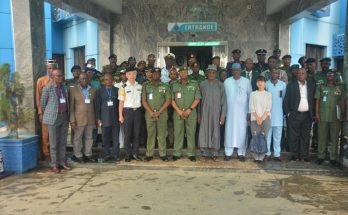Nigeria Police Force yesterday trained its officers on major ways to investigate and tackle various issues of cyber-related crimes.
The categories of officers trained included lawyers who are mostly prosecutors and investigators.
Speaking on the three-day train the trainers’ workshop in Abuja, organised by the Police in collaboration with Messrs MKN & Co., yesterday, a former Deputy Inspector General of Police (DIG), Hashimu S.
Argungu, said police in the country needed modern technological Know-how to combat contemporary issues of cyber crimes.
“No specific regional body (AU and ECOWAS) to address cyber crime.
We are lagging behind in terms of measures for cyber security and inadequate legal measures to address electronic evidence.
It also, lack of frameworks governing communications interception technology, electronic surveillance devices and legal framework among others.” Argungu added that the major challenges confronting the country in the fight against cyber crime was an unending cyber battle of supremacy disagreement among law enforcement and security agencies. “The country lacks integration between the public and private sector in fighting against cyber crime.
Also, inadequacy in the policy option that deals with issues of surveillance are part of the challenges.” The DIG, however, said the police can be strengthened if the police’ powers would be expanded to integrate both Automated Fingerprint Identification System (AFIS) and all other Biometric Fingerprint System (BFS) as components to be called Integrated Automated Fingerprint Identification System (IAFIS).
He said “the provision of the component system to store: DNA, Fingerprint, Voice mark and Face (iris of the eyes) in the component can help the police in fight against crime in the country.” On what the country should focus on, the expert said: “Nigeria should adopt effective legal framework to combat cyber crime and other misuses of information technology.
It should also ensure enforcement of laws in well defined geographical boundaries and harmonise cyber laws and policies.
“There should be awareness/ capacity building on policy and legal issues related to ICT.
It should also set up Computer Incident
Blueprint gives you the latest Nigerian news in one place. Read the news behind the news on burning National issues, Kannywood, Videos and the Military



